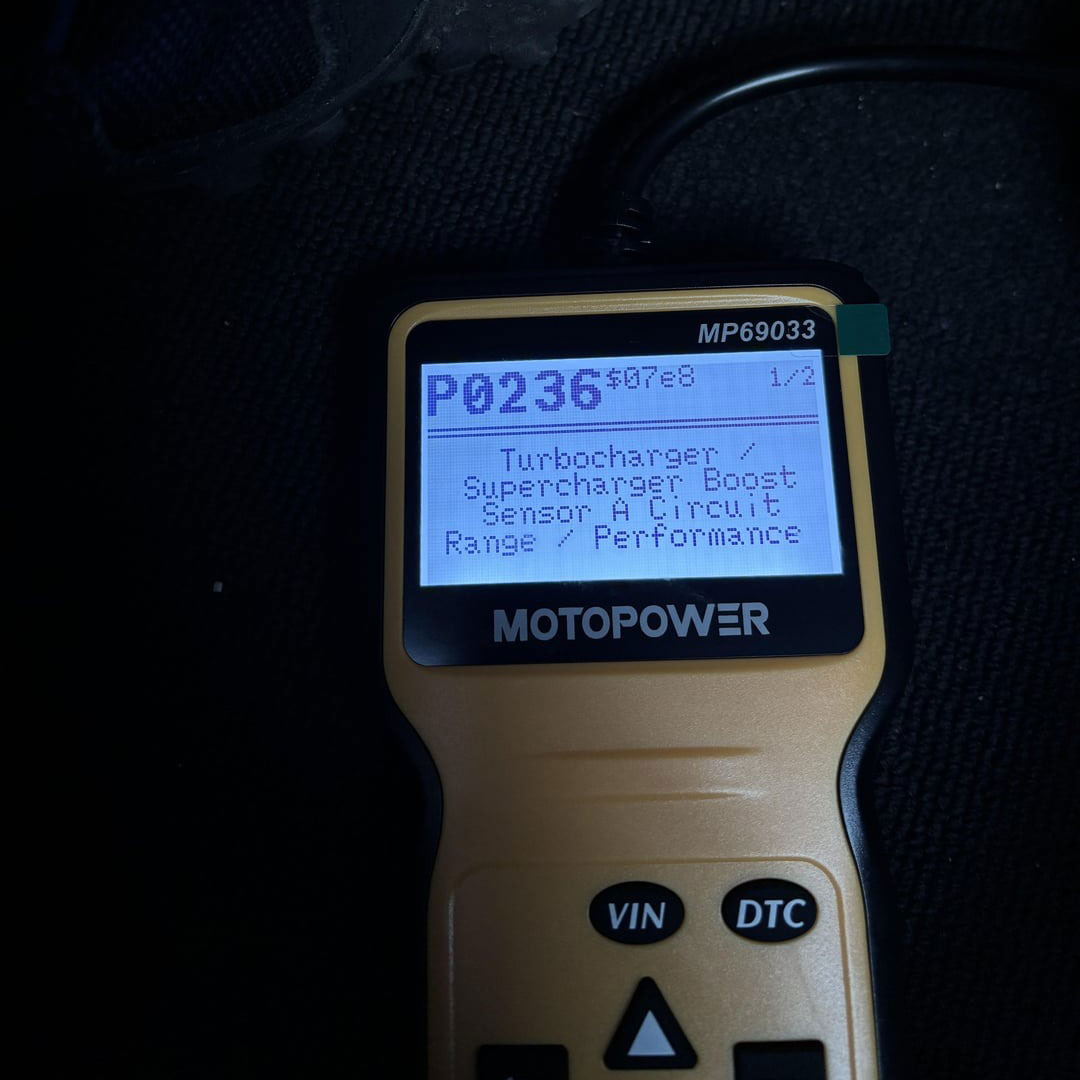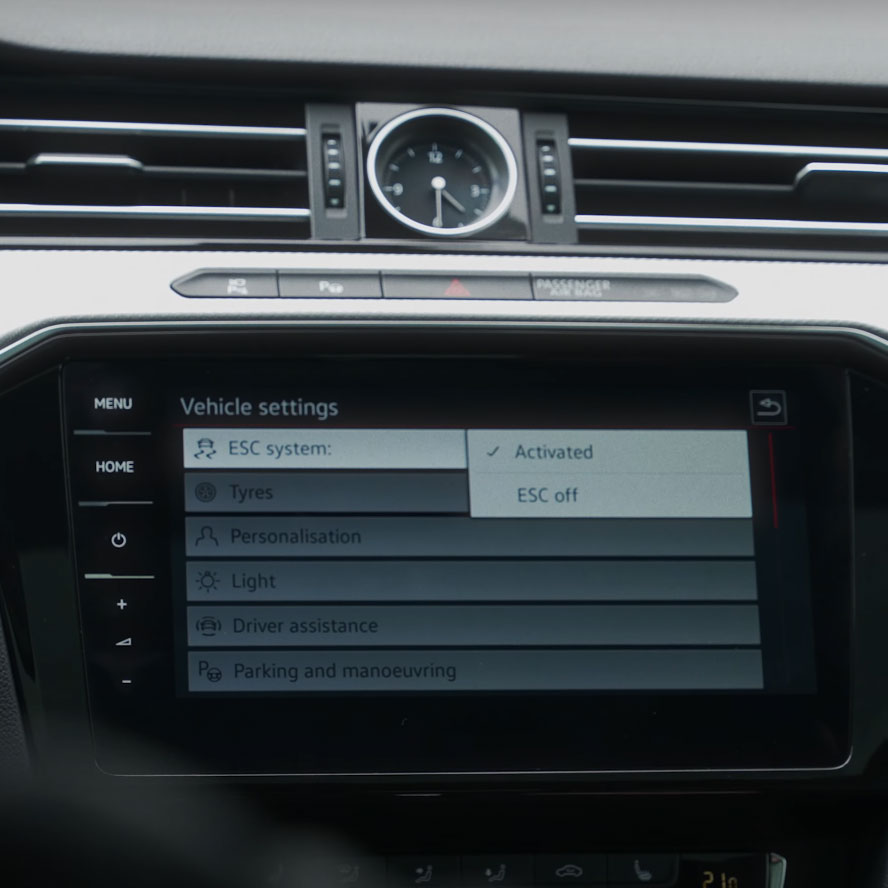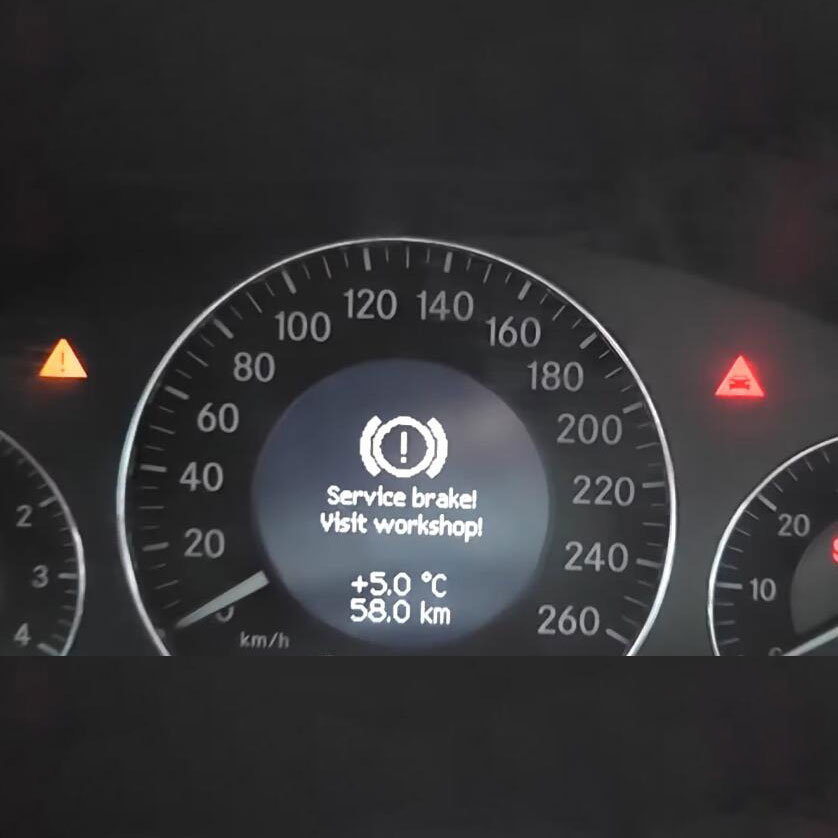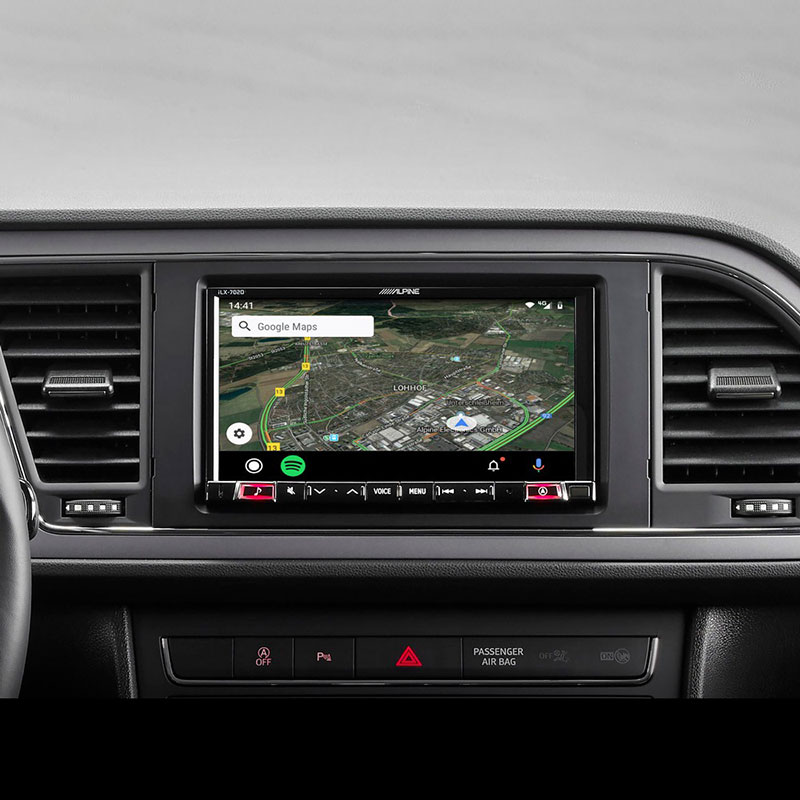
What Does Audi DTC P030000 Really Mean?
Contents
- 1. Understanding the Audi DTC P030000 Code
- 1.1. What Does Random/Multiple Cylinder Misfire Mean?
- 1.2. Why Is This Code Important for Audi Owners and Technicians?
- 2. Common Causes of Audi DTC P030000
- 2.1. Ignition System Issues
- 2.2. Fuel System Problems
- 2.3. Vacuum Leaks
- 2.4. Engine Mechanical Issues
- 2.5. Sensor Malfunctions
- 2.6. ECU Issues
- 3. Diagnosing the Audi P030000 Code
- 3.1. Initial Inspection
- 3.2. Testing the Ignition System
- 3.3. Fuel System Testing
- 3.4. Vacuum Leak Testing
- 3.5. Compression Testing
- 3.6. Sensor Testing
- 4. Solutions for Audi DTC P030000
- 4.1. Ignition System Repairs
- 4.2. Fuel System Repairs
- 4.3. Vacuum Leak Repairs
- 4.4. Engine Mechanical Repairs
- 4.5. Sensor Repairs
- 4.6. ECU Repairs
- 5. Preventing Future Misfires
- 5.1. Regular Maintenance
- 5.2. Quality Parts
- 5.3. Monitoring Engine Performance
- 6. How AutoExplain.com Can Help
- 6.1. Remote Diagnostic Assistance
- 6.2. ECU Programming and Software Updates
- 6.3. Access to Expert Technicians
- 6.4. Step-by-Step Guidance
- 6.5. Component Location and Wiring Diagrams
- 7. Real-World Case Study
- 8. Advanced Diagnostic Techniques
- 8.1. Using an Oscilloscope
- 8.2. Fuel Trim Analysis
- 8.3. Cylinder Balance Test
- 9. Impact of Ignoring the P030000 Code
- 9.1. Catalytic Converter Damage
- 9.2. Increased Fuel Consumption
- 9.3. Engine Damage
- 10. FAQ About Audi DTC P030000
- 10.1. What does the Audi DTC P030000 code mean?
- 10.2. Can I drive my Audi with the P030000 code?
- 10.3. How do I fix the P030000 code on my Audi?
- 10.4. Is the P030000 code a serious problem?
- 10.5. Can bad spark plugs cause the P030000 code?
- 10.6. How do I check for vacuum leaks on my Audi?
- 10.7. Can a faulty MAF sensor cause the P030000 code?
- 10.8. How do I test my Audi’s ignition coils?
- 10.9. What is the role of AutoExplain.com in fixing the P030000 code?
- 10.10. How often should I replace my Audi’s spark plugs to prevent the P030000 code?
- 11. Conclusion: Addressing Audi DTC P030000 with Confidence
The Audi Dtc P030000 code, indicating a random or multiple cylinder misfire, signals potential engine performance issues. Let’s explore the causes, diagnostics, and solutions for this problem, and how AutoExplain.com can assist you with expert remote support.
1. Understanding the Audi DTC P030000 Code
The Audi DTC P030000 code signifies that the engine’s control unit (ECU) has detected random or multiple cylinder misfires. Misfires occur when there isn’t proper combustion in one or more cylinders, leading to rough idling, reduced power, and potential engine damage.
1.1. What Does Random/Multiple Cylinder Misfire Mean?
Random misfires indicate that the misfire is not isolated to a single cylinder and occurs across multiple cylinders intermittently. This can be due to issues affecting the entire engine rather than a specific cylinder component.
1.2. Why Is This Code Important for Audi Owners and Technicians?
This code is crucial because it can point to severe underlying engine problems. Ignoring it can lead to catalytic converter damage, increased fuel consumption, and further engine wear. Timely diagnosis and repair are essential to maintaining your Audi’s performance and longevity.
2. Common Causes of Audi DTC P030000
Several factors can trigger the P030000 code in your Audi. Identifying the root cause is the first step to resolving the issue.
2.1. Ignition System Issues
Ignition system problems are prime suspects when dealing with misfires.
- Faulty Spark Plugs: Worn or damaged spark plugs can fail to ignite the air-fuel mixture effectively.
- Defective Ignition Coils: Coils provide the high voltage needed for spark plugs to ignite the mixture. Failure can lead to misfires.
- Spark Plug Wires: Damaged or worn wires can cause weak or inconsistent spark.
2.2. Fuel System Problems
Proper fuel delivery is critical for engine combustion.
- Clogged Fuel Injectors: Injectors spray fuel into the cylinders. Clogs can disrupt the spray pattern and fuel quantity.
- Weak Fuel Pump: An underperforming fuel pump may not provide sufficient fuel pressure, leading to lean conditions and misfires.
- Fuel Filter: A dirty fuel filter restricts fuel flow to the engine.
2.3. Vacuum Leaks
Vacuum leaks can disrupt the air-fuel mixture, causing misfires.
- Intake Manifold Gaskets: Leaks in these gaskets can allow unmetered air into the engine.
- Vacuum Hoses: Cracked or disconnected hoses can create vacuum leaks.
- PCV Valve: A faulty PCV valve can cause vacuum imbalances.
2.4. Engine Mechanical Issues
Mechanical problems within the engine can also lead to misfires.
- Low Compression: Worn piston rings or valves can lead to low compression in one or more cylinders.
- Valve Problems: Bent, burnt, or sticking valves can affect cylinder sealing and combustion.
- Timing Chain/Belt: A worn or improperly aligned timing chain or belt can affect valve timing.
2.5. Sensor Malfunctions
Sensor issues can lead to incorrect data being sent to the ECU, affecting engine performance.
- Mass Air Flow (MAF) Sensor: Measures the air entering the engine. A faulty MAF sensor can cause incorrect air-fuel ratios.
- Oxygen (O2) Sensors: These sensors monitor exhaust gases. Faulty sensors can cause the ECU to make incorrect adjustments to the fuel mixture.
- Crankshaft Position Sensor: Provides data on the engine’s RPM and crankshaft position. A malfunctioning sensor can disrupt ignition and fuel injection timing.
2.6. ECU Issues
Although less common, ECU malfunctions can also cause misfires.
- Software Glitches: Software errors can lead to incorrect engine management.
- Hardware Failures: Physical damage or component failure within the ECU can disrupt its operation.
3. Diagnosing the Audi P030000 Code
A systematic approach to diagnosing the P030000 code will help pinpoint the exact cause.
3.1. Initial Inspection
- Visual Check: Look for obvious signs of damage, such as cracked vacuum hoses, loose electrical connectors, and fuel leaks.
- OBD-II Scanner: Use a scanner to confirm the P030000 code and check for any other related codes.
- Freeze Frame Data: Analyze the freeze frame data to understand the conditions when the code was set (RPM, engine load, temperature, etc.).
3.2. Testing the Ignition System
- Spark Plug Inspection: Remove and inspect the spark plugs for wear, damage, or fouling. Replace as necessary.
- Ignition Coil Testing: Use a multimeter or coil tester to check the resistance and output of each ignition coil.
- Spark Plug Wire Testing: Inspect the wires for damage and test their resistance.
3.3. Fuel System Testing
- Fuel Pressure Test: Use a fuel pressure gauge to check the fuel pump’s output pressure.
- Fuel Injector Testing: Use a multimeter to check the resistance of each fuel injector. Consider professional cleaning or replacement if necessary.
- Fuel Filter Inspection: Inspect the fuel filter for clogs and replace if needed.
3.4. Vacuum Leak Testing
- Smoke Test: Use a smoke machine to introduce smoke into the intake system and identify any leaks.
- Carburetor Cleaner Method: Spray carburetor cleaner around intake manifold gaskets and vacuum hoses. Listen for changes in engine RPM that indicate a leak.
3.5. Compression Testing
- Dry Compression Test: Perform a compression test on each cylinder. Low compression indicates potential mechanical issues.
- Wet Compression Test: If compression is low, add a small amount of oil to the cylinder and repeat the test. An increase in compression suggests worn piston rings.
3.6. Sensor Testing
- MAF Sensor Testing: Use a multimeter or scan tool to check the MAF sensor’s output. Compare readings to the manufacturer’s specifications.
- O2 Sensor Testing: Monitor the O2 sensor readings with a scan tool. Ensure the sensors are switching properly between rich and lean.
- Crankshaft Position Sensor Testing: Use a multimeter to check the sensor’s resistance and signal output.
4. Solutions for Audi DTC P030000
The solution depends on the identified root cause. Here are common remedies.
4.1. Ignition System Repairs
- Spark Plug Replacement: Replace worn or damaged spark plugs with new ones that meet the manufacturer’s specifications.
- Ignition Coil Replacement: Replace faulty ignition coils. Consider replacing all coils simultaneously for consistent performance.
- Spark Plug Wire Replacement: Replace damaged or worn spark plug wires.
4.2. Fuel System Repairs
- Fuel Injector Cleaning/Replacement: Clean clogged fuel injectors using professional cleaning equipment or replace them if necessary.
- Fuel Pump Replacement: Replace a weak fuel pump to ensure adequate fuel pressure.
- Fuel Filter Replacement: Replace a clogged fuel filter.
4.3. Vacuum Leak Repairs
- Intake Manifold Gasket Replacement: Replace leaking intake manifold gaskets.
- Vacuum Hose Replacement: Replace cracked or disconnected vacuum hoses.
- PCV Valve Replacement: Replace a faulty PCV valve.
4.4. Engine Mechanical Repairs
- Engine Overhaul: Address low compression or valve issues with an engine overhaul. This may involve replacing piston rings, valves, or other internal components.
- Timing Chain/Belt Replacement: Replace a worn or improperly aligned timing chain or belt. Ensure proper timing alignment during installation.
4.5. Sensor Repairs
- MAF Sensor Replacement: Replace a faulty MAF sensor.
- O2 Sensor Replacement: Replace malfunctioning O2 sensors.
- Crankshaft Position Sensor Replacement: Replace a faulty crankshaft position sensor.
4.6. ECU Repairs
- ECU Reprogramming: Reprogram the ECU to correct software glitches.
- ECU Replacement: Replace the ECU if there are hardware failures.
5. Preventing Future Misfires
Preventive maintenance is critical to avoid future misfires.
5.1. Regular Maintenance
- Scheduled Tune-Ups: Follow the manufacturer’s recommended maintenance schedule, including spark plug replacement, fuel filter replacement, and inspection of ignition components.
- Oil Changes: Regular oil changes help maintain engine lubrication and prevent wear, which can contribute to misfires.
5.2. Quality Parts
- OEM or Equivalent: Use original equipment manufacturer (OEM) parts or equivalent high-quality aftermarket parts to ensure compatibility and reliability.
5.3. Monitoring Engine Performance
- Pay Attention to Symptoms: Be vigilant for signs of misfires, such as rough idling, reduced power, and unusual noises. Address these symptoms promptly to prevent further damage.
6. How AutoExplain.com Can Help
Diagnosing and resolving the Audi DTC P030000 code can be complex. AutoExplain.com provides expert remote support to assist you through the process.
6.1. Remote Diagnostic Assistance
Our experienced technicians can guide you through the diagnostic process using advanced remote tools. We offer real-time assistance to help you pinpoint the root cause of the misfires.
6.2. ECU Programming and Software Updates
AutoExplain.com offers ECU programming and software updates to address any software glitches that may be causing the misfires. We can remotely update your ECU to the latest software version, ensuring optimal engine performance.
6.3. Access to Expert Technicians
Our team of skilled technicians has extensive experience with Audi vehicles. We provide reliable and accurate advice to help you resolve the P030000 code efficiently.
6.4. Step-by-Step Guidance
We offer step-by-step guidance on how to perform various diagnostic tests and repairs. Our detailed instructions, combined with remote support, make the repair process more manageable.
6.5. Component Location and Wiring Diagrams
AutoExplain.com provides access to component location diagrams and wiring schematics. This resource is invaluable for locating and testing various components related to the misfire.
7. Real-World Case Study
Consider a case where an Audi A4 owner experienced a P030000 code after a routine car wash. The initial inspection revealed no obvious issues. Using AutoExplain.com’s remote diagnostic assistance, the technician guided the owner through testing the ignition coils and spark plugs. It was discovered that water had entered the spark plug wells, causing the misfires. After drying the wells and applying dielectric grease to the spark plug connectors, the issue was resolved. This case highlights the effectiveness of remote diagnostics in identifying and resolving complex issues.
8. Advanced Diagnostic Techniques
For more complex cases, advanced diagnostic techniques may be necessary.
8.1. Using an Oscilloscope
An oscilloscope can be used to analyze the waveform patterns of ignition coils, fuel injectors, and sensors. This allows for a more detailed assessment of their performance.
8.2. Fuel Trim Analysis
Analyzing short-term and long-term fuel trim values can provide valuable insights into the air-fuel mixture. High positive fuel trim values may indicate a lean condition caused by vacuum leaks or fuel delivery issues. Negative values may indicate a rich condition.
8.3. Cylinder Balance Test
A cylinder balance test involves disabling each fuel injector one at a time and monitoring the engine’s RPM. A significant drop in RPM when a particular cylinder is disabled indicates that the cylinder is contributing to the engine’s overall performance. A minimal drop may suggest a problem with that cylinder.
9. Impact of Ignoring the P030000 Code
Ignoring the P030000 code can lead to several adverse effects.
9.1. Catalytic Converter Damage
Prolonged misfires can cause unburnt fuel to enter the exhaust system, leading to overheating and damage to the catalytic converter. Replacing a catalytic converter can be costly.
9.2. Increased Fuel Consumption
Misfires reduce the engine’s efficiency, resulting in increased fuel consumption.
9.3. Engine Damage
Severe misfires can cause physical damage to engine components, such as pistons, valves, and cylinder heads.
10. FAQ About Audi DTC P030000
10.1. What does the Audi DTC P030000 code mean?
The Audi DTC P030000 code means the engine’s computer has detected random or multiple cylinder misfires.
10.2. Can I drive my Audi with the P030000 code?
Driving is not recommended because it can lead to catalytic converter damage and increased fuel consumption.
10.3. How do I fix the P030000 code on my Audi?
Fix the P030000 code by systematically diagnosing the ignition, fuel, and vacuum systems, and addressing any identified issues.
10.4. Is the P030000 code a serious problem?
Yes, it’s a serious problem that can lead to catalytic converter damage, increased fuel consumption, and engine damage.
10.5. Can bad spark plugs cause the P030000 code?
Yes, worn or damaged spark plugs can cause misfires and trigger the P030000 code.
10.6. How do I check for vacuum leaks on my Audi?
Check for vacuum leaks using a smoke test or by spraying carburetor cleaner around intake manifold gaskets and vacuum hoses.
10.7. Can a faulty MAF sensor cause the P030000 code?
Yes, a faulty MAF sensor can cause incorrect air-fuel ratios, leading to misfires.
10.8. How do I test my Audi’s ignition coils?
Test ignition coils using a multimeter to check resistance or with a coil tester to assess output.
10.9. What is the role of AutoExplain.com in fixing the P030000 code?
AutoExplain.com offers remote diagnostic assistance, ECU programming, expert technicians, and step-by-step guidance to help resolve the P030000 code efficiently.
10.10. How often should I replace my Audi’s spark plugs to prevent the P030000 code?
Replace spark plugs according to the manufacturer’s recommended maintenance schedule, typically every 30,000 to 60,000 miles, to prevent misfires.
11. Conclusion: Addressing Audi DTC P030000 with Confidence
The Audi DTC P030000 code indicates random or multiple cylinder misfires, signaling potential engine performance problems. Understanding the causes, performing thorough diagnostics, and implementing the appropriate solutions are key to resolving this issue. AutoExplain.com offers expert remote support, ECU programming, and step-by-step guidance to help you address the P030000 code efficiently and confidently.
Don’t let the P030000 code compromise your Audi’s performance. Contact AutoExplain.com today for professional assistance and ensure your vehicle runs smoothly.
For expert remote support, contact AutoExplain.com via:
- WhatsApp: +1(936)2896695
- Email: [email protected]
- Website: AutoExplain.com
- Office Address: 1500 N Grant ST Sten Denver, CO 80203


How to Deactivate ESC in Volkswagen, Audi, Skoda, or SEAT

Mercedes Benz ‘Service Brake Visit Workshop’ Warning? Here’s What Dealers Don’t Tell You!

How to Perform Seat Navigation Update? – A Comprehensive Guide for Technicians






